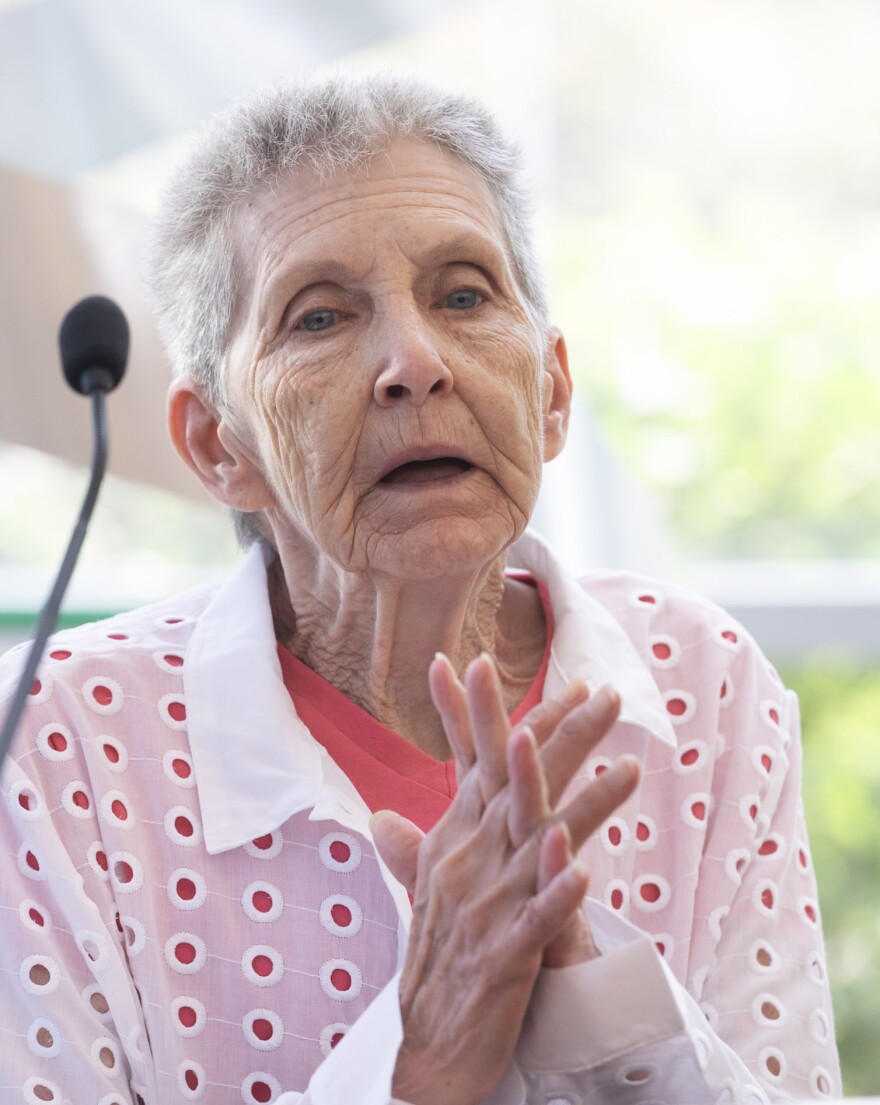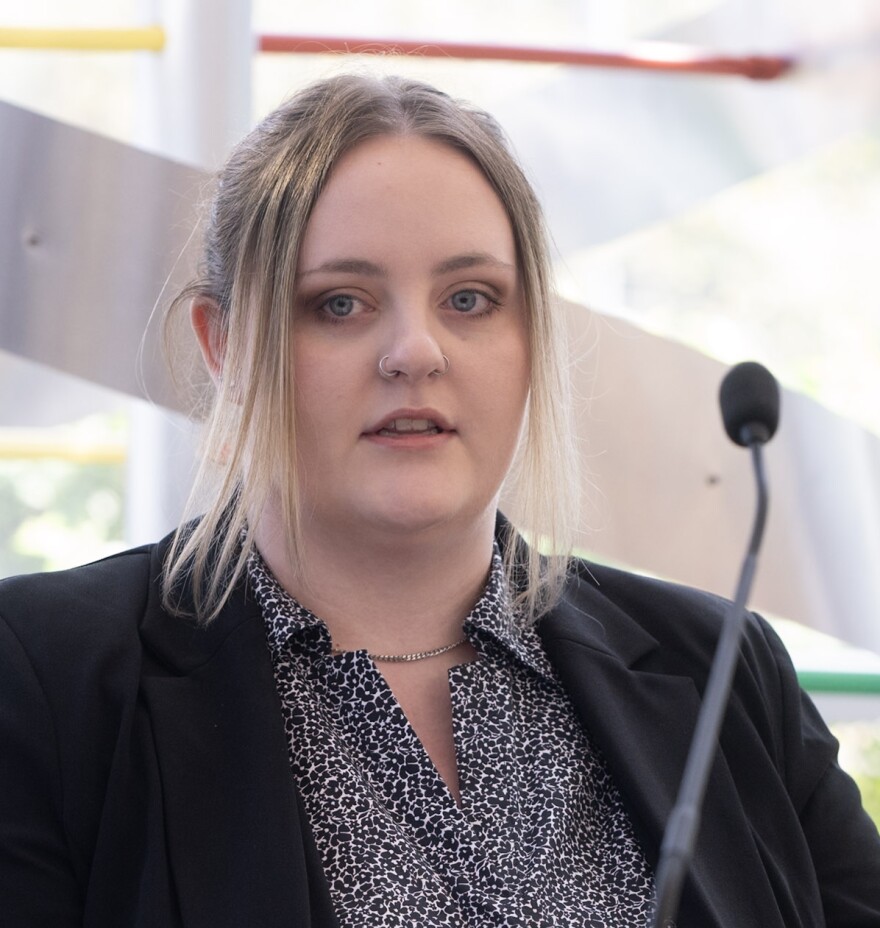In a new partnership with Southern Illinois University Edwardsville students, Illinois State Police have identified three victims of an infamous St. Louis-area serial killer and also brought charges for a murder that had gone unsolved for 14 years.
State police Director Brendan Kelly said that the internship program helped law enforcement identify Kelly Johson, Crystal Lay and Carol Jean Hemphill and that all were victims of Maury Travis. Kelly said Travis killed 17 women in the early 2000s.
This spring, the St. Clair County state’s attorney’s office also charged a 34-year-old East St. Louis man in the death of Truman Lee Smith, who was killed in 2011.

“Before long, I won't have to be calling every month,” said Jeanette Smith, the mother of Truman Smith, at a press conference Tuesday at the state police Metro East Forensic Lab in Belleville.
Kelly and academics at SIUE see the partnership as a way to expand their pool of limited resources — allowing the students not only to get real-world experience but also do hours of investigative work that has helped lead to conclusions of cold cases. It’s a program that Kelly believes could be replicated in other parts of the state.
“Anytime we can come up with a new way to amplify the resources that we have to have a force multiplier and also have the opportunity to add knowledge and develop people who will potentially be working on these cases in the future … that is definitely a win-win,” Kelly said.
All three women who had been listed as Jane Does prior to this year, as well as the man charged with killing Smith, were identified using genetic testing.
Road workers found the three women in early 2002 in Madison and St. Clair counties, according to state police. Johnson was found alongside Interstate 64 near Mascoutah. Lay was found along Interstate 70 near Highland. Hemphill was found in a creek bed adjacent to Illinois Route 3 in Columbia.
Johnson and Lay had been deceased long enough that fingerprint and dental information didn’t lead to identifying the victims.
State police entered the cases into the National Missing and Unidentified Persons System, or NamUs, in 2014. The partnership also worked with the University of North Texas Center for Human Identification.
All the results of the DNA testing came back within the past year. Investigators used what detectives call investigative genetic genealogy to help solve Smith’s murder, said Jamie Brunnworth, commander of the state force's local investigation unit.
The practice utilizes genetic information that’s been collected by companies to help identify both victims and suspects.
The breakthrough in the cases of the women believed to have been victims of Travis came through a collaboration with the St. Charles County Police Department, which collected DNA from family members of the missing persons, Brunnworth said.
“The biggest hurdle is first you have to identify a victim,” said Scott Wobbe, a state police investigator. “Once you ID a victim, then you can start figuring out who the suspect is.”
The Columbia Police Department announced the identification of Hemphill earlier this year.
Maury Travis killed himself in custody at a St. Louis County jail in Clayton in 2002. Law enforcement believes Travis bound and killed at least 12 women, though he claimed to have killed more.

The partnership that helped solve these cold cases places eight students in unpaid internships each semester, said Trish Oberweiss, a criminal justice professor at SIUE who helps run the program.
The students come from a variety of academic backgrounds, including criminal justice, biology, forensics and chemistry. After reviewing the files, the students do the legwork of determining which cold cases are closest to being solved, using a “solvability matrix.”
“Knowing I played even a small role in helping return a name to these women who had gone unidentified for so long is something I’ll carry with me for the rest of my life,” said Ryleigh Franklin, an SIUE graduate who worked on the cases. “The pride I feel is difficult to put into words.”
Jeanette Smith, the mother of Truman Smith, said she’s thankful for the work on her son’s case. However, Smith said the fact that someone faces trial in the killing doesn’t “mend our broken hearts.”
“This doesn't give us closure,” Smith said. “When the case is over — and there's justice made — then the case will be closed, but it will not be closure for us. But life goes on, and we'll make it through it.”







